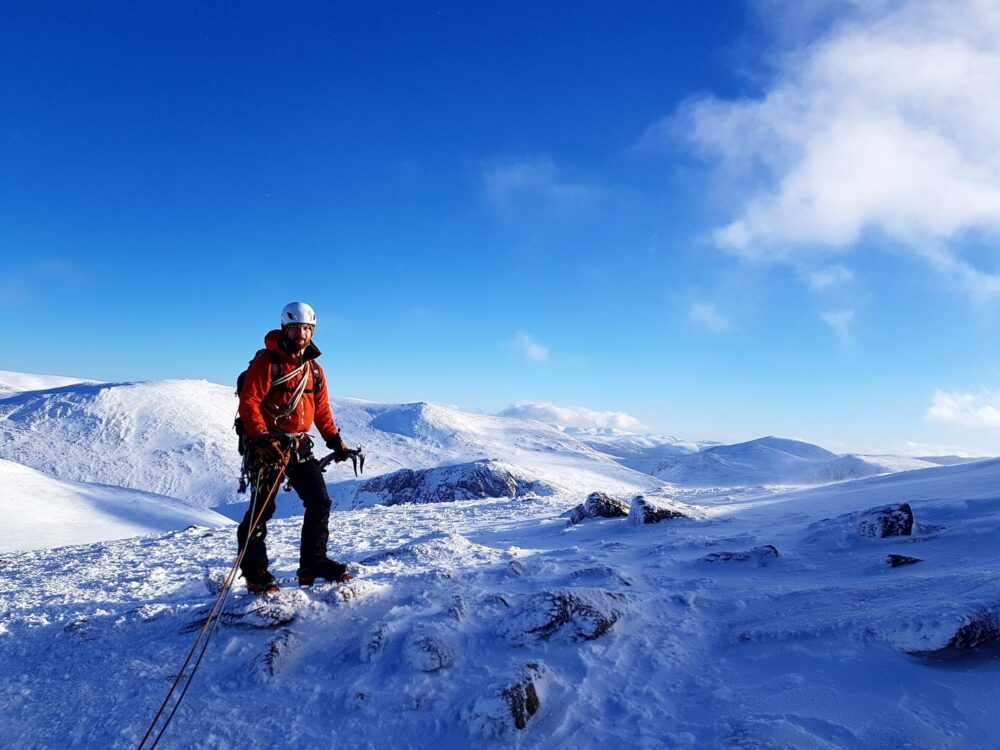As the dark nights draw in and temperatures start to drop, you might be thinking about a winter mountaineering course in the Lake District. If you love escaping to the mountains, those crisp days and snow-covered peaks will no doubt be beckoning you. But if you don’t have the winter skills to tackle the severe weather, you could find yourself in dangerous situations.
Even if you spend the summer months on the summits, winter climbing in the Lake District is a different force to be reckoned with. A well-defined mountain path in the summer could be hidden beneath a few feet of snow in the winter. And the weather conditions can be fierce. Additional dangers such as snow blizzards, avalanches and ice will put your winter skills to the test.
Get Fit
No matter how in shape you are when climbing in summer, you’ll need extra fitness to survive in winter. In cold weather your body expends more energy to stay warm, you’ll be carrying more kit and possibly trudging through snow. So, it’s really important to up your fitness regime before going on a winter mountaineering course.

The Benefits of a Winter Skills Course
There are specific elements of a winter skills course you mightn’t have considered, such as how to use crampons and ice axe skills for snow climbing. It’s vital to find a winter mountain leader with experience of the more technical aspects of winter climbing. From navigating snowy conditions and avalanche awareness, to knowing how to put on crampons correctly, we’ve got everything covered.
Winter Mountaineering Kit
You’re going to need a bigger kit! Although much of your summer kit can be used in winter, there are a few extras you’ll need to pack.
- Winter boots are essential as you’ll need much sturdier footwear with a waterproof lining.
- Ice axe and crampons. Don’t worry if you don’t want to fork out a fortune though, as we can supply these on our winter mountaineering course.
- A larger, waterproof backpack as you’ll be carrying more kit with you.
- A well-insulated and waterproof jacket with a stiff hood.
- Warm base layers and a fleece mid layer.
- Warm, waterproof trousers.
- Essential accessories such as woolly hat, goggles, balaclava, spare layers, food, protein snacks and warm drinks.
Find out more about our winter skills course in the Lake District.
For more details or to ask any questions feel three to contact Adventuring right here


0 Comments